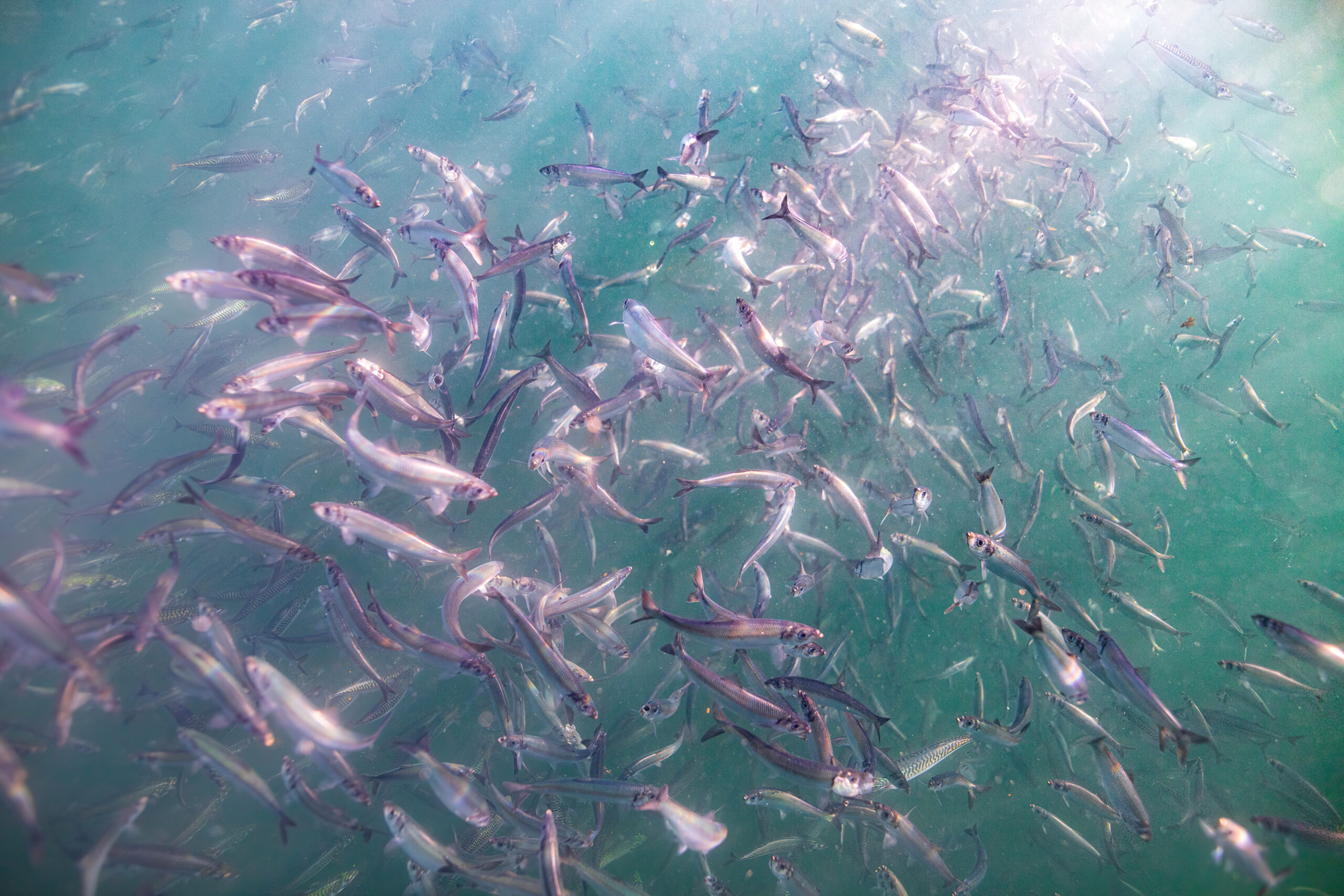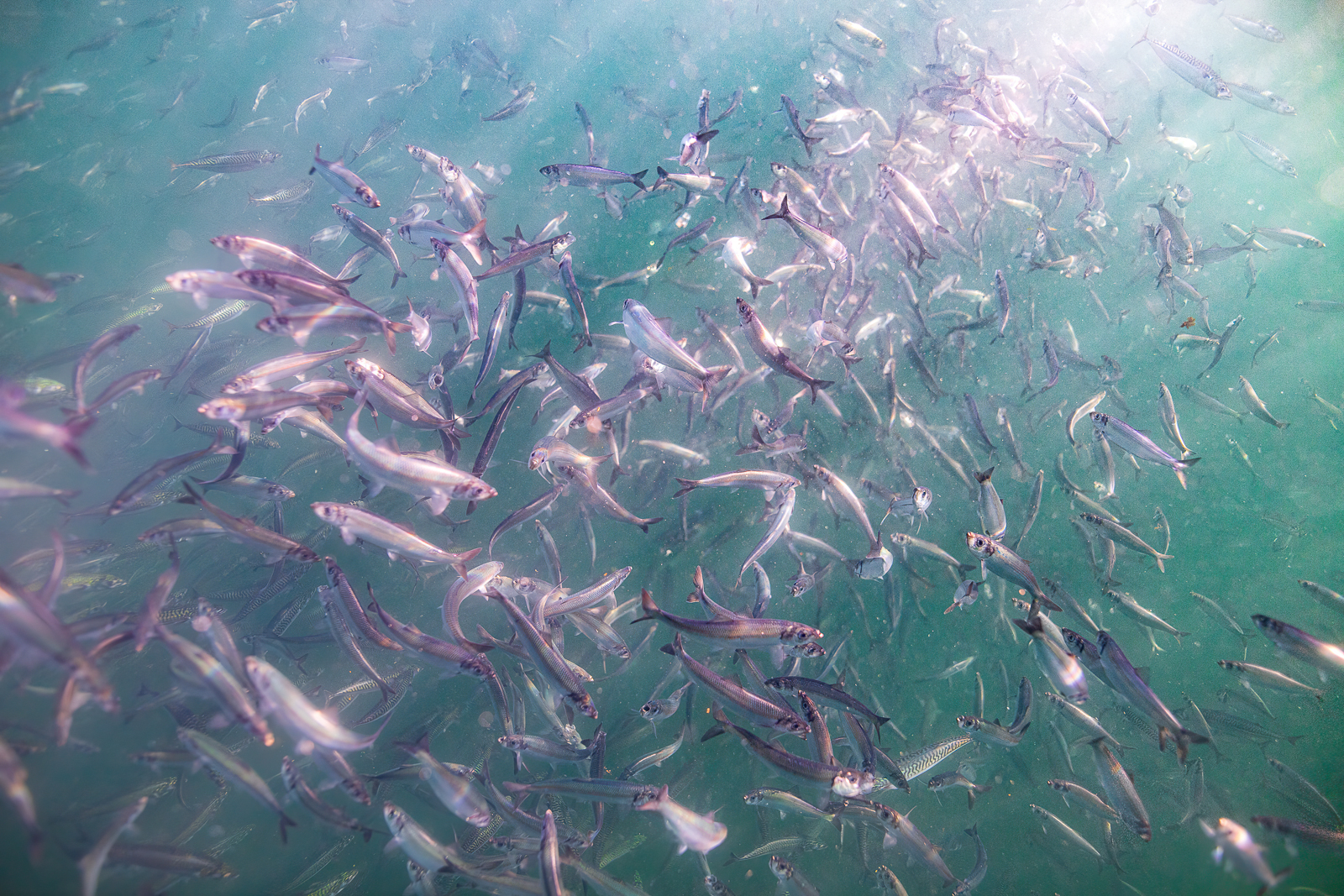
SIZE:
Up to 44 cm and up to 750 g.
LIFE EXPECTANCY:
Up to 25 years.
LIFE CYCLE:
Sexual maturity around 4 years.
The reproduction period can be in spring or autumn, depending on the herring population. This fish migrates to the same site for reproduction, along the coast in shallow waters.
The female lays between 10,000 and 60,000 eggs. Once fertilized, the eggs settle on the substrate in the form of sticky ribbons. They hatch in less than three weeks, depending on the temperature.
Bubble farts
Herring swallow air at the surface and release it through their anus in the form of bubbles. These farts serve to manage the herring’s buoyancy. Scientists have also observed that these farts become noisy at night, emitting a clicking sound. These could possibly serve as a means of communication. While this has yet to be proven, this discovery has encouraged further research into the noises made by fish and their causes. Farts have not made their last bubble.
Atlantic herring is a slender fish with a round belly and a very forked tail. It has a wide mouth and a protruding lower jaw. Its back is blueish-green, its belly is silver and its fins are dark. Its dorsal fin is short. A distinctive feature is the oval area of small teeth in the centre of its palate, distinguishing it from other fish in the Clupeidae family.
In the water column, in open seas and near coasts, up to 365 m deep.
Their habitat zones vary. During the day, herring remain in deep waters. At night, they come to the surface to feed.
Atlantic herring live in schools of thousands of fish in cold waters.

Atlantic herring live in schools of thousands of fish in cold waters.
Credit : Jean-Christophe Lemay, photo taken in Twillingate, in 2022.
PREYS:
Plankton
PREDATORS:
Squid
Fish
Marine mammals
Seabirds
Herring is a “forage” species, meaning that it serves as food for many marine species. It is therefore particularly important in the ecosystem.
All-you-can-eat buffet
A school of herring of some 4 billion individuals was once observed. It was approximately 4 km3 in size. Imagine this large, living, moving wall. A feast for predators…
MACHINES:
Purse seine, weir, gillnet.
REGULATIONS:
Fishing effort management:
- Quotas
- Fishing season outside the reproduction period
- Regulated fishing zones
Atlantic herring fishing is very important, both economically and socially. It was one of the most widely fished species in Canada. However, certain populations are declining, leading to stricter regulations being imposed, such as bans on fishing since 2022.
BENEFITS:
Herring is an excellent source of protein (approx. 17.5 g/100 g), vitamins A, B12 and D, as well as omega-3.
LET’S COOK:
Smooth texture; firmer when smoked. Delicate, white flesh; subtle flavour. Large herring have an oilier flavour. They are full of bones; however, these may be edible, depending on preparation. They can also be easily removed.
This versatile fish can be eaten fresh, smoked, salted, grilled, or marinated. Its roe and its milt can also be eaten.
OUR CULINARY ADVICE:
- Do not overcook herring.
- Better baked, pan-fried or grilled than steamed or poached.
- Using other salty foods with smoked herring is not recommended.
- The eggs become crispy when fried in butter, a real treat.





